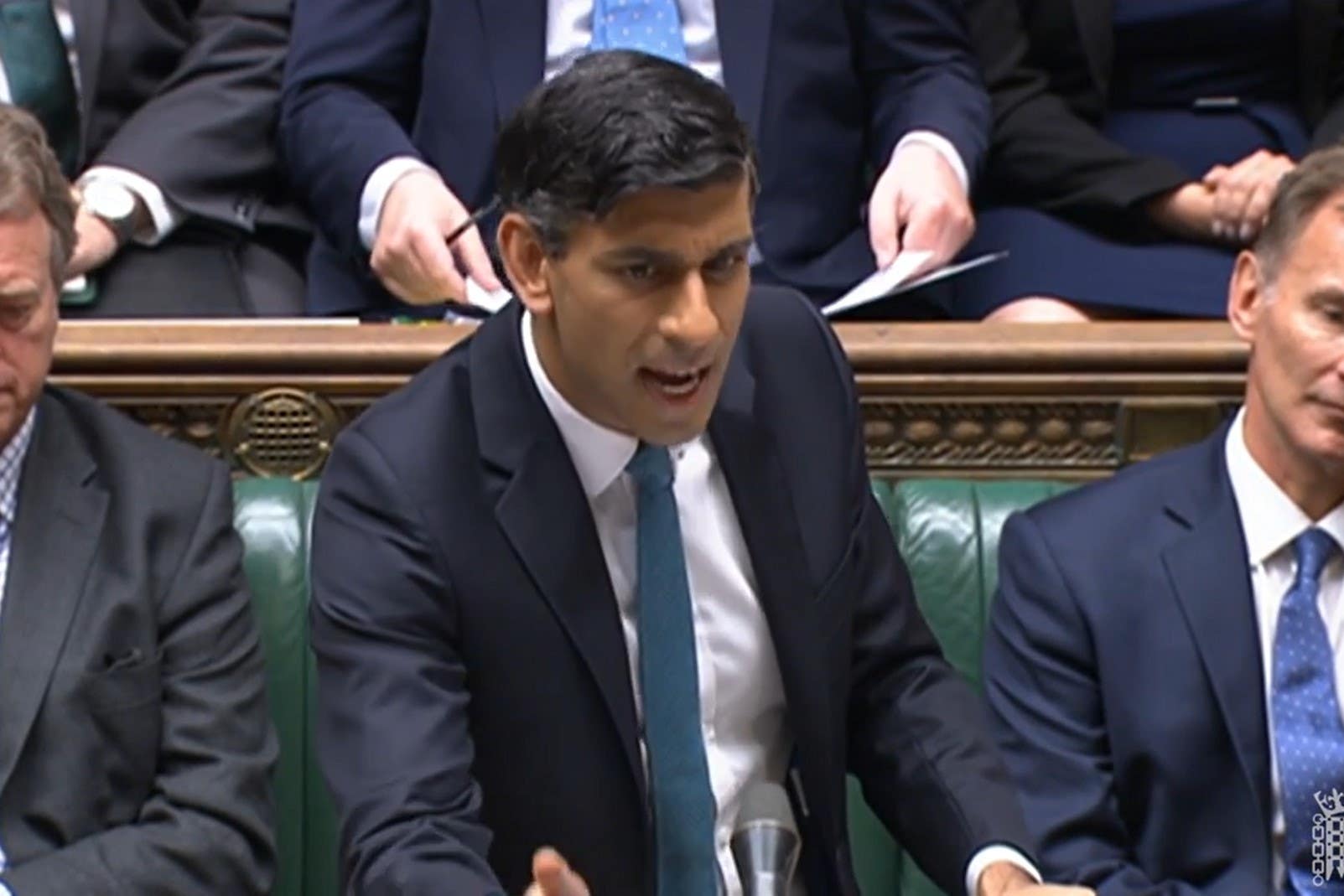‘He’s given up’: all-drama Starmer’s wounding smack on slack Sunak rings true
The prime minister used to bounce around at the despatch box like a prize fighter, but there was no fight in him today, writes John Rentoul


Keir Starmer, who opposed the 300,000-a-year house-building target before he supported it, asked Rishi Sunak why he is against it when he used to be for it.
The prime minister replied with a jumble of statistics that amounted to: “Look, you and I both know that it is difficult to build houses in places people want to live in the UK, and that successive governments have tried to get more houses built, but they are pretty much up against the limits of what is possible in democratic politics, in which the interests of existing residents have more electoral power than the diffuse interests of a generation who would like to live somewhere but have no leverage in specific constituencies.”
The honest answer to Starmer’s question is that it is easier for an opposition to support an unrealistic target than it is for a government. What is interesting is that it was only last year that Labour’s policy was to be on the side of “local people” against “developers”. But now, Starmer has decided to leave it to the Liberal Democrats to run Nimby campaigns against Conservatives in the southeast, while Labour can go for a simpler “build more houses” message nationally. It is all part of the informal Lib-Lab alliance against the Tories.
Sunak knows that all parties are torn between the interests of their backyards and the yearning for sweeping national solutions, and he tried to point out the muddle and hypocrisy of Labour policy. He listed shadow ministers who are against more house building in their areas, but his heart wasn’t in it.
“He’s given up,” observed Starmer, sharply. It was a telling line; nothing clever or witty, but everyone on both sides of the Commons knew it was true. Sunak’s default mode has been irritatingly upbeat. He used to bounce around at the despatch box in his eagerness to take the fight to the other side. When he became prime minister, Starmer suddenly looked rather old and tired by comparison, and he still reads out his questions, head down, with a dull, thudding predictability.
But now Sunak’s battery seems to be running down. He replied to Starmer’s questions with a weary condescension, complaining that the Labour leader “hasn’t taken the time to understand the detail” of the government’s plans to help mortgage holders. He tried to rouse his own side, but could only go through the motions of attacking Starmer for breaking his promises. The Tory MPs behind him know full well that most of Starmer’s recent U-turns have been changes from potentially vote-losing policies to positions that won’t stop their voters defecting at the election.
Starmer’s attacks on the prime minister were hardly thrilling. He accused him of failing to stand up to his own party on the house-building target. He repeated the mantra, “they crashed the economy”, when everyone knows that Sunak and Jeremy Hunt saved it from the attempt by Liz Truss and Kwasi Kwarteng to crash it. And Starmer was the first of three opposition MPs to misquote the prime minister about people keeping their nerve.
What Sunak actually said on Sunday was that “we” – as a nation – “have got to hold our nerve”, and stick to his plan to get inflation and interest rates down. According to Labour, however, he was “lecturing” people facing higher mortgage payments to hold their nerve, which only goes to show how “out of touch” he is.
Stephen Flynn, for the Scottish National Party, even called him a “near billionaire” and asked when was the last time he struggled to pay a bill. In return, Sunak abandoned his early and highly effective tactic of being exaggeratedly polite towards the SNP, and snarled about the party’s “complete economic illiteracy”, which would “make the situation worse”. Just what Flynn would have wanted.
Most of Prime Minister’s Questions was dreary and life-diminishing. The heart sank at the thought that there are another 16 months of this before an election in October next year.
Which was why Alison McGovern, the Labour shadow minister, won the prize for asking the question her leader should have asked. She said her constituents had been made a promise: that inflation would be “at or below five per cent by the end of the year”. She wanted to know: “What will happen if he fails to meet that promise? Will it be yet more ranting on about the Labour Party, or will it be the general election my constituents crave?”
If the promise to halve inflation is missed, the game really will be up for the Conservatives. McGovern put her finger on it. From Sunak’s demeanour today, he is halfway to accepting that it is all over already.



Join our commenting forum
Join thought-provoking conversations, follow other Independent readers and see their replies
Comments